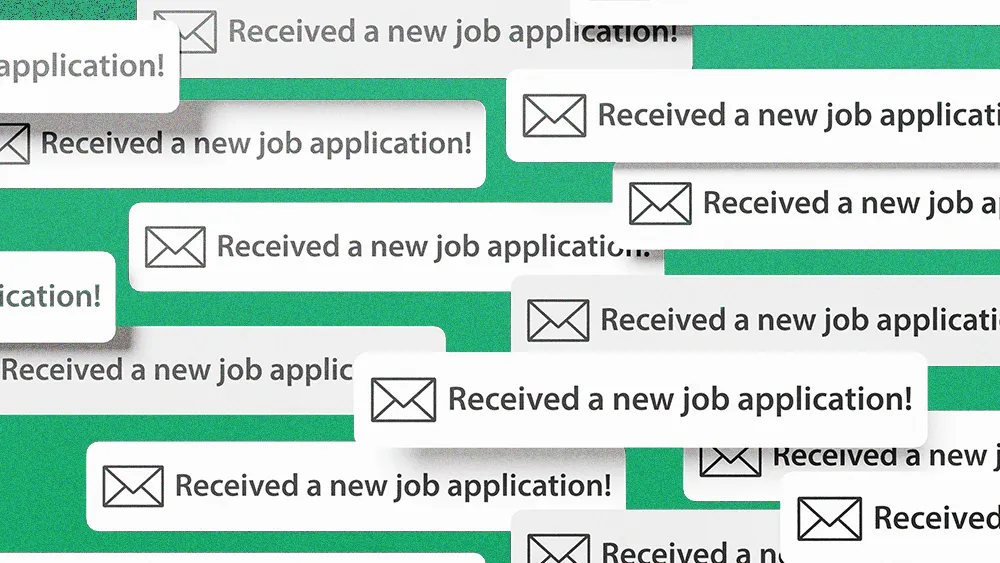Gen Z Shuns Corporate Path for Blue-Collar Gigs Amid ‘AIxiety’

Key Points
A Zety report reveals Gen Z’s fear of AI is driving them away from white-collar jobs and towards skilled trades.
The “AIxiety Pivot” sees Gen Z seeking job security in trades, with 40% upskilling and some resorting to ‘rage-applying.’
Despite the shift, concerns about physical demands and limited mobility in trades deter some Gen Z workers.
A new Zety report reveals that Gen Z’s anxiety over AI is so profound it’s actively pushing them away from traditional white-collar jobs. With little faith left in the value of a college degree, a majority are now seriously considering skilled trades as a more secure career path.
The AIxiety pivot: Nearly half of Gen Z workers have already changed their professional plans specifically because of AI, which they fear will decimate entry-level corporate roles. Zety has dubbed this movement the “AIxiety Pivot,” capturing the generation’s preemptive scramble for job security. Their reactions are split between proactive and panicked: while 40% are methodically upskilling, nearly one in five admit to ‘rage-applying’ for jobs.
From defense to offense: The turn toward trades isn’t just about avoiding automation; it’s a strategic move for better opportunities. Half of Gen Z believe blue-collar jobs offer higher pay than expected, along with more job opportunities and greater flexibility—a clear rejection of the nine-to-five grind. This cultural shift is also getting a boost from social media, with influencers on “Trades TikTok” helping shape a more positive view of hands-on work.
The bottom line: While Gen Z is clearly open to rerouting their careers, the path isn’t clear for everyone. The physical demands of the work, combined with fears of limited mobility and a simple lack of obvious entry points, still deter many from making the leap.
Reading Recap:
Also on our radar: This widespread “AIxiety” among young workers exists for a reason, with one IMF report suggesting AI could disrupt nearly 40% of all jobs worldwide. The trend is raising questions about whether the U.S. workforce is truly ready to revive its manufacturing sector. Meanwhile, the legal system is grappling with the fallout, as a judge recently ordered software firm Workday to disclose which of its clients used an AI hiring tool, highlighting the real-world clash between AI and employment law.
Related articles
TL;DR
A Zety report reveals Gen Z’s fear of AI is driving them away from white-collar jobs and towards skilled trades.
The “AIxiety Pivot” sees Gen Z seeking job security in trades, with 40% upskilling and some resorting to ‘rage-applying.’
Despite the shift, concerns about physical demands and limited mobility in trades deter some Gen Z workers.
A new Zety report reveals that Gen Z’s anxiety over AI is so profound it’s actively pushing them away from traditional white-collar jobs. With little faith left in the value of a college degree, a majority are now seriously considering skilled trades as a more secure career path.
The AIxiety pivot: Nearly half of Gen Z workers have already changed their professional plans specifically because of AI, which they fear will decimate entry-level corporate roles. Zety has dubbed this movement the “AIxiety Pivot,” capturing the generation’s preemptive scramble for job security. Their reactions are split between proactive and panicked: while 40% are methodically upskilling, nearly one in five admit to ‘rage-applying’ for jobs.
From defense to offense: The turn toward trades isn’t just about avoiding automation; it’s a strategic move for better opportunities. Half of Gen Z believe blue-collar jobs offer higher pay than expected, along with more job opportunities and greater flexibility—a clear rejection of the nine-to-five grind. This cultural shift is also getting a boost from social media, with influencers on “Trades TikTok” helping shape a more positive view of hands-on work.
The bottom line: While Gen Z is clearly open to rerouting their careers, the path isn’t clear for everyone. The physical demands of the work, combined with fears of limited mobility and a simple lack of obvious entry points, still deter many from making the leap.
Reading Recap:
Also on our radar: This widespread “AIxiety” among young workers exists for a reason, with one IMF report suggesting AI could disrupt nearly 40% of all jobs worldwide. The trend is raising questions about whether the U.S. workforce is truly ready to revive its manufacturing sector. Meanwhile, the legal system is grappling with the fallout, as a judge recently ordered software firm Workday to disclose which of its clients used an AI hiring tool, highlighting the real-world clash between AI and employment law.




